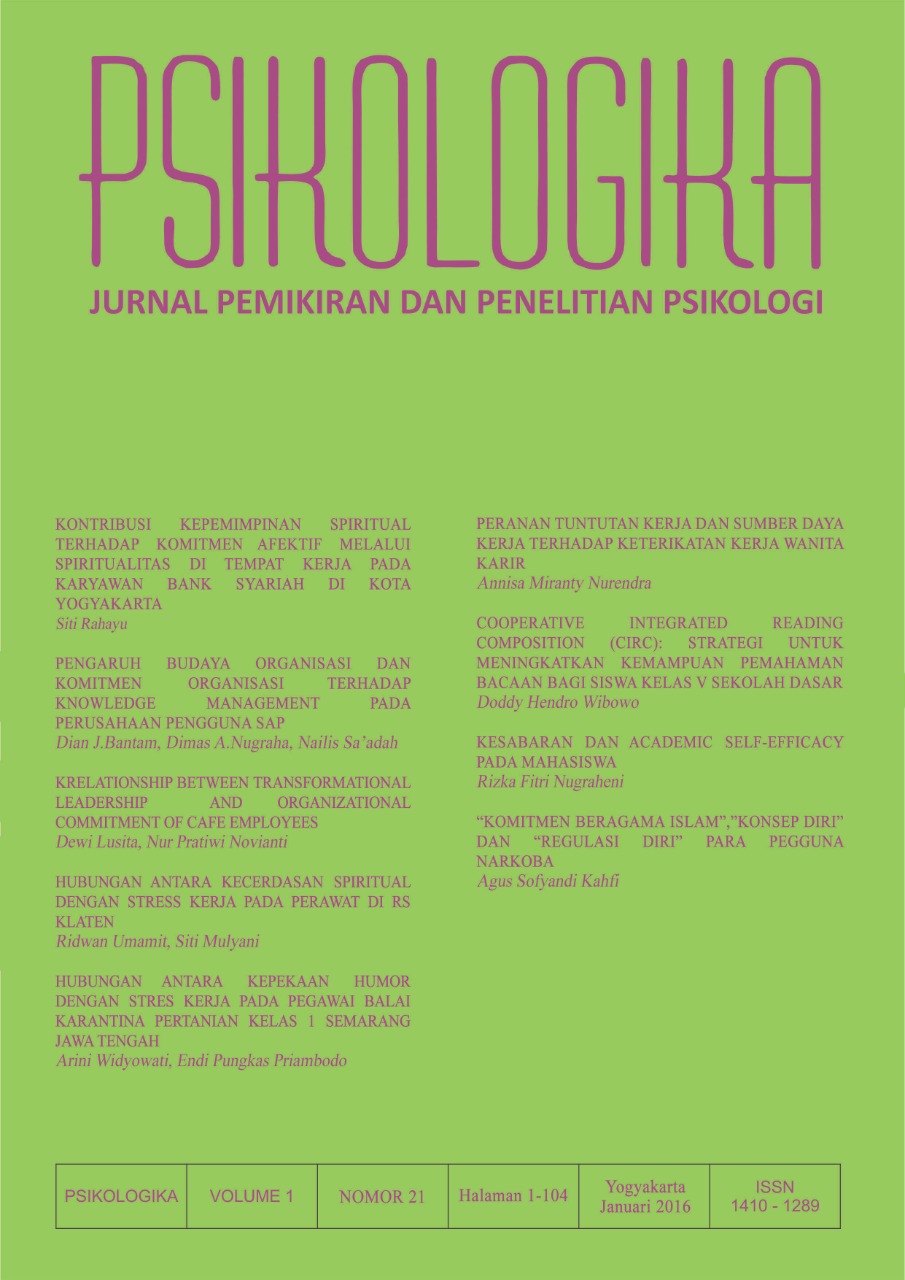Main Article Content
Abstract
The aim of this research was to find whether there's relationship between academic self-efficacy and shabr, as well as its supporting aspects. Participants were 108 undergraduate students. The instruments used were adapted version of College Questionnaire Academic Self-efficacy (Owen & Froman, 1988) and Shabr questionnaire (El Hafi, Rozi, & Mundzir, 2013). Data were analyzed with Pearson correlation. Results showed that there's significant correlation between shabr and academic self-efficacy. This finding can contribute to shabr theory construction and enhance comprehensive understanding about shabr among the community.
Â
Keywords: Academic self-efficacy, shabr, student
Article Details
License
Authors who publish with this journal agree to the following terms:
- Authors retain copyright and grant the journal right of first publication with the work simultaneously licensed under a Creative Commons Attribution-ShareAlike 4.0 International License that allows others to share the work with an acknowledgment of the work's authorship and initial publication in this journal.
- Authors are able to enter into separate, additional contractual arrangements for the non-exclusive distribution of the journal's published version of the work (e.g., post it to an institutional repository or publish it in a book), with an acknowledgment of its initial publication in this journal.
- Authors are permitted and encouraged to post their work online (e.g., in institutional repositories or on their website) prior to and during the submission process, as it can lead to productive exchanges, as well as earlier and greater citation of published work (See The Effect of Open Access).




